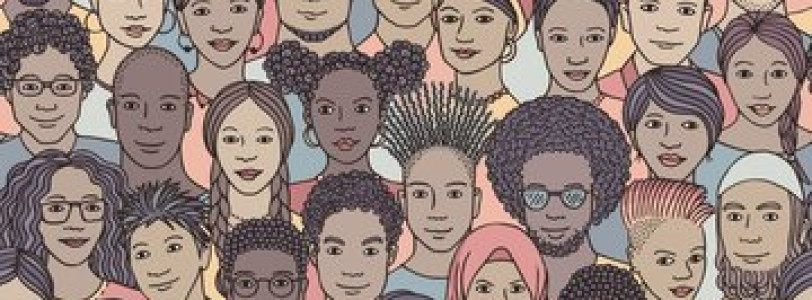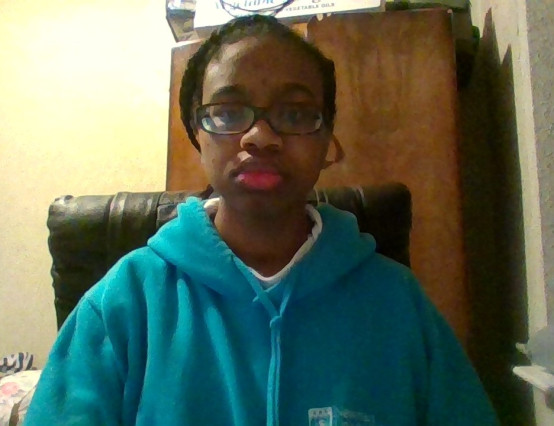In February 2024, it was announced that the theatrical production Slave Play, by Jeremy O Harris, would be showing in London’s West End. There would also be days where showings would be open to Black theatregoers specifically, given the play’s themes of race and interracial relationships. They have been referred to as ‘Blackout’ showings, devised to eliminate the ‘white gaze’, following such events during its Broadway run. While some believe that Black people need safe spaces to ensure they are comfortable in settings where they might not otherwise feel welcome, others consider it to be a form of segregation, akin to Jim Crow in the USA and apartheid in South Africa.
With all this in mind, does creating separate events and spaces for Black people and POC do more harm than good in society? Or are they a necessity for creating safe spaces where they can be themselves, free from discrimination?
POC only spaces and events provide safety and confidence for non-white communities
Creating events solely for people of colour, like the Blackout showings of Slave Play, seek to create a space where Black people, for instance, feel welcomed, comfortable and secure. This is particularly important in regard to events and spaces that attract far more white people than non-white people. Theatre is a prime example of this: Arts Council England, via The Guardian, reports that 93% of theatre audiences are white, and 7% are from non-white backgrounds. Black people report feeling uncomfortable in majority-white spaces, which makes them question whether or not they belong there, regardless of the fact that the arts are for people of all backgrounds.
By dedicating two nights for people of Black heritage to watch and enjoy Slave Play, Blackout is creating a safe space where the community’s members do not have to worry about their place in theatre consumption, because there are other members of their community who are participating as well. It should also be noted that Black Out does not forbid white (or non-Black) people from attending these dedicated showings; Harris maintained that although the event is targeted at Black people, organisers won’t turn away anyone who isn’t Black.
Black-only events bring to mind segregation of the 20th century
On the other hand, some may argue that creating Black-only and POC-only events are a step backward to a time of government-sanctioned racial segregation. In the USA and South Africa, white and Black people attended separate schools, had to use separate public bathrooms and couldn’t use the same recreational facilities, such as swimming pools and beaches.
Fast-forward to the 21st century, and universities that hold events or create spaces for Black people (or other members of the global majority) have been accused of segregation and ‘banning’ white people. In 2022, an alumnus of the University of Berkeley, California, criticised the institution for instilling a policy of banning white people from the common areas of off-campus co-op housing, the ‘Person of Colour Theme House’. David Seaborg, the alumnus in question, considered the policy to be ‘anti-white’, while a student of mixed heritage recounted that they were unable to bring their white father into the residence.
Elsewhere, the Black Students’ Union of the University of California Santa Barbara invited Black students to a private screening of Black Panther: Wakanda Forever (2022). Focused on affirming ‘Black joy’ amongst Black people, it maintained that white/non-Black students would not be allowed, saying that their non-attendance would ‘support [its] intention of creating a Black…celebration space.’
Creating spaces specifically for Black people/POC and the intentional exclusion of white (or non-Black) people from events and spaces can be deemed akin to segregation. However, arguably creating POC-only spaces is not segregation, as it is not enshrined in the law. Black/POC spaces seek to enrich, not demean, their experiences and lives by being surrounded by other members of their community. They are devised for the benefit of POC, whereas segregation and apartheid were devised as a way of white people exerting power over Black people and preventing the latter group from progressing in society.
Integration vs. division
Those who feel that POC-friendly spaces are a form of racial separatism might also maintain that if we are to achieve the dream of a truly racially equal society, then the key is integrating POC alongside white people. However, this is not so simple; when one looks up articles on POC in ‘white’ spaces, one finds mentions of microaggressions and white fragility, as well as personal accounts of what a POC has experienced in such an environment. For instance, in Black in a White Space, Elijah Anderson discusses how Black people try to fit in with white people only to experience stereotyping, backhanded compliments and racial profiling.
Adapting to white-dominant spaces to avoid this is known as code-switching, and while it can aid a POC in successful interactions with white people, it also means that they may forget who they really are due to changing and/or watering down their behaviour to appease them. The creation of POC-friendly spaces means that they are free to be themselves without judgement. Unlike POC-only spaces, areas that include POC alongside white people (and seek to integrate the communities) still have as much of an element of white power as white-dominant spaces, since non-white people have to cater to the needs and whims of white people, neglecting their own needs in the process. The existence and creation of Black-only/POC-only/orientated spaces ensures that these groups can be themselves.
POC groups provide opportunities to those who may not otherwise get them
When POC create clubs, events and organisations targeted towards themselves, they do so with the intention of creating a space where they will be able to get opportunities that they may not be able to otherwise access in the white mainstream. In 2020, the BBC’s Countryfile reported on a group called Black Girls Hike, which organises events where Black women can explore the countryside without judgement or microaggressions. Since the countryside and hiking are usually associated with white people, BGH seeks to challenge the idea of Black women not being interested in the outdoors, by encouraging them to venture into rural areas with people like them. As well as providing a safe and inclusive environment, it also aims to increase participation from them, since access, time and resources are barriers that hinder them from getting involved in this endeavour.
The verdict
POC only events are a necessity in Western society, as they provide safe spaces free from discrimination and judgement. This allows POC to thrive and feel confident participating in activities that they otherwise wouldn’t engage in, since they are involved alongside people of a similar (or the same) racial and cultural background. However, we can see that if we want a more racially inclusive society, white people need to educate themselves on microaggressions and racial stereotyping. Arming themselves with this knowledge means that they will be able to create more welcoming and truly inclusive spaces for POC, treating them with respect and calling out racism when they see or hear it.









0 Comments